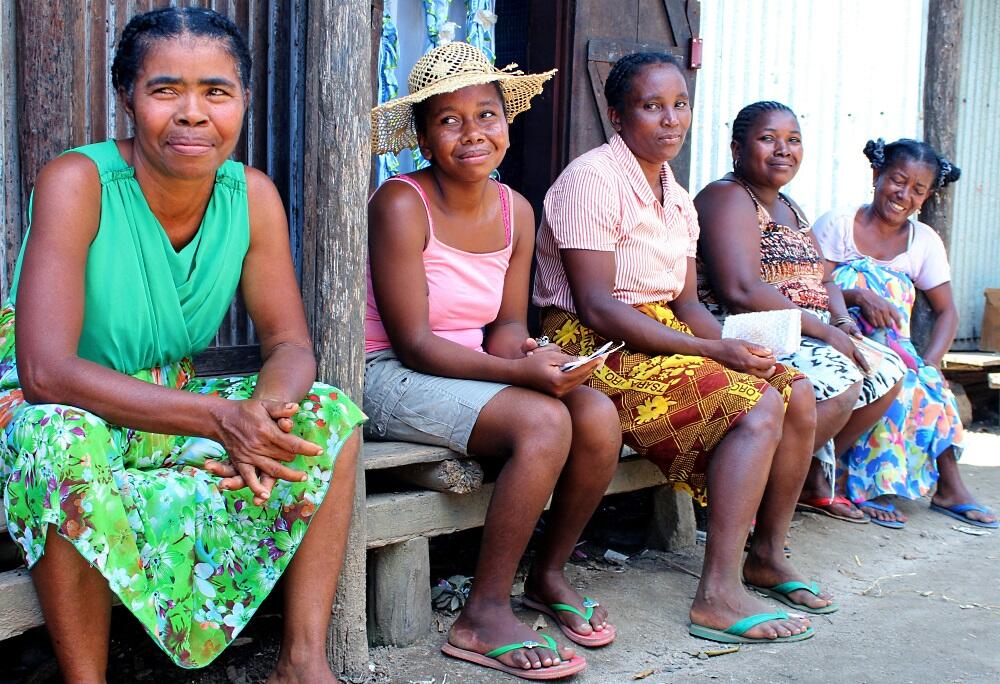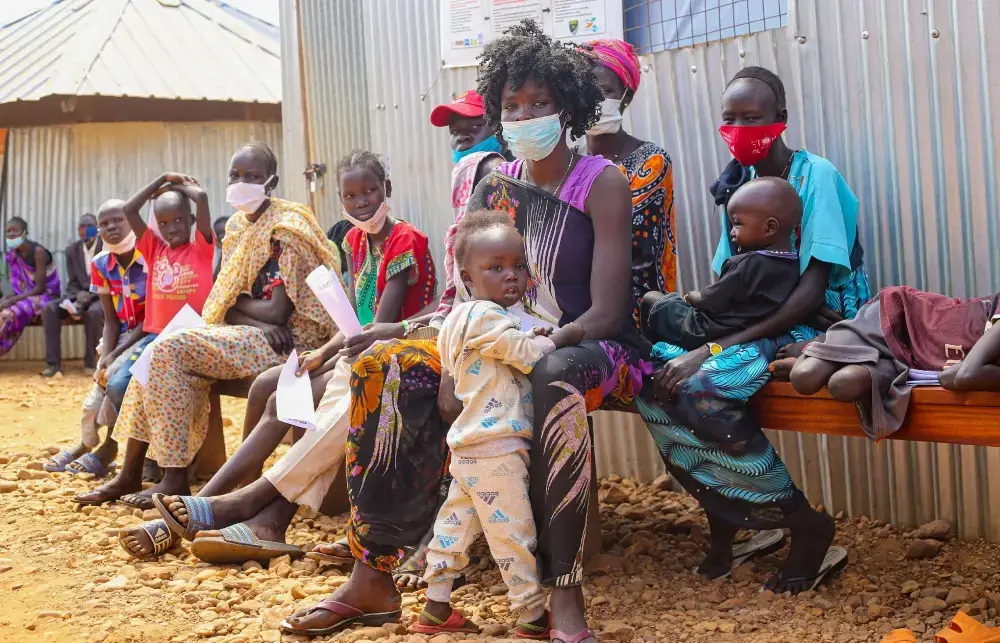ANTSIRABE, Madagascar—Madagascar’s momentous third general census has been achieved, 25 years after the previous one was carried out. Vital for the development of the country, this undertaking involved 45,000 enumerators – among them a young woman who was determined to carry out the mission entrusted to her and her colleagues: in counting the population, to leave no one out.
At 8 o'clock on morning, before the enumerators set off to visit the ten households they were required to see each day, we asked Tahiana Rasolonjatovo, 27, what about her role in such an historic moment.
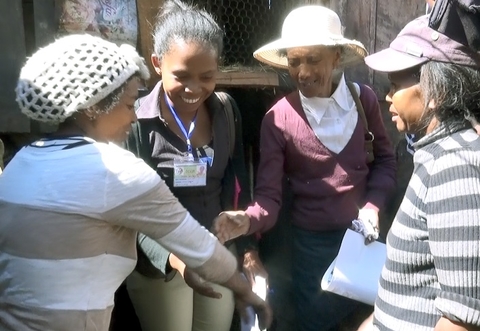
(second from left) was one of 45,000 enumerators who ensured
Madagascar's 2018 census was a success. © UNFPA Madagascar/
Hanta Andremanisa
Why did you apply to be a census enumerator?
"I am a student and as part of my studies, I often use the data from INSTAT, the national statistics agency, including data from the last census in 1993. I can confirm that it is not logical to make projections [about the country’s future] using 25-year-old data. When I saw the job advertisement, I told myself that besides being able to make money, it would be my contribution to the development of the country."
How did people react during the enumeration?
"Before going to the field, we had a briefing session to learn about the issues and importance of the census. [In the field], people’s reactions are mixed. There are some who welcome us and respond well to the questions because they are convinced of the importance of the census. Unfortunately, there are many who consider the census a political [tool] or propaganda and they slam the door in our faces.
People’s reactions are mixed. Some welcome us and respond well to the questions because they are convinced of the importance of the census.
"I confess that at a certain point, I almost gave up. Many times we have been insulted and [it is] impossible to make these people listen to reason. There is a lot of mistrust on the part of the people but […] this is the real challenge of my mission."
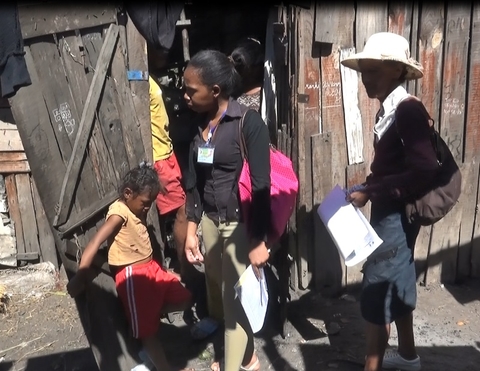
because they are convinced of the importance of the census," says
Tahiana about her experience of being an enumerator.
© UNFPA Madagascar/Hanta Andremanisa
What were the difficulties and how did you overcome them?
"People refused to answer us because they do not understand the census [process], or how it is [carried out]. [They assume] the census is an operation to [get their] personal information
[to use it] for the next presidential election.
"Often, they want to give only the number of people living in the home and no [further] information. The more I insist, the less they cooperate and they even go as far as insulting [me].
To ensure we count [everybody], we often go back to these homes and try to explain calmly [...] that it concerns the quality of their housing as it is a general census of population and housing.
"To ensure we count them, we often go back to these homes and try to explain calmly that it is an operation by INSTAT, the national statistics agency, and that it does not concern only the population but also the quality of their housing as it is a general census of population and housing.
"We show them the questionnaire and, if necessary, we are helped by the neighbourhood leaders and local residents, who give testimony.
"The task seems easy but it is not easy at all. Reaching the daily goal [of interviewing 10 houses each] is a big challenge, but when it is achieved, you have the satisfaction of work [well] done.
"I am sure that the other enumerators [also feel] like that and do this work to contribute to the development of Madagascar."
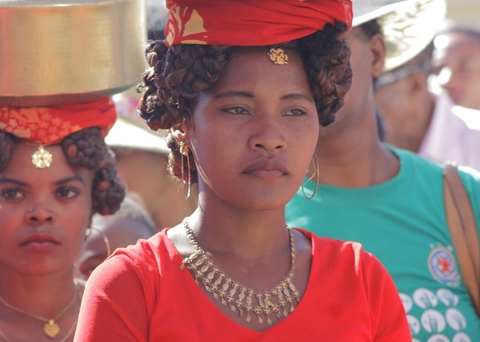
mortality ratio is 478 deaths per 100,000 live births.
© UNFPA Madagascar/Hanta Andremanisa
Census will assist with preparation of National Development Plan
Madagascar currently has a population of around 24.4 million (CIA World Factbook 2017), is experiencing a population growth rate of 2.7 per cent (ENSOMD2012-13), and economic growth is at 4.5 per cent (BAD).
The country’s total fertility rate is 5 children per woman, while the maternal mortality ratio is 478 deaths per 100,000 live births (ENSOMD2012-13).
It is anticipated that the 3rd Population and Housing Census (PHC) results will be available by the end of 2019 (INSTAT). The census is an essential process that will not only update existing population data at country level, but also assist with preparation of the next National Development Plan, which will start in 2020.
With data disaggregated by sex, age and other characteristics of the population, this will help decision-makers in the development of sectoral, regional and district development plans. The results of the PHC will serve as a basis for monitoring and evaluation of implementation of these plans. The PHC will provide the sampling frame for the major surveys.
UNFPA together with its partners has contributed to financing of the PHC process. UNFPA has provided support for INSTAT staff capacity building on the enumeration process.
By Hanta Andremanisa

